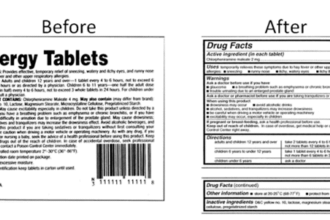Every doctor is supposed to educate and inform his patients; do we really need a buzzword for such a basic concept? The tragedy is that this fairly simple and obvious notion is not implemented routinely in today’s world.
Every doctor is supposed to educate and inform his patients; do we really need a buzzword for such a basic concept? The tragedy is that this fairly simple and obvious notion is not implemented routinely in today’s world.
Information Therapy can be defined as the prescription of the right information, to the right person, at the right time to help make a better health decision. But this is not free-floating generic information by simply Googling it. In fact, the problem is that there is too much information available online today –of which a major chunk is unreliable and misleading. In fact, easy access to so much information at the click of a button has made both doctors and patients skeptical of using this information in the real world. An overload of information has resulted an in information smog , which often leads to further confusion and uncertainty.
Information Therapy refers to prescription-strength information, tailored to your needs. Ideally, this information is best dispensed by your own physician – the one person whom you trust, and who knows you and your medical problems intimately. Equally importantly, Information Therapy must result in a tangible good – it should help you make better decisions. The key question is- what is the ‘right’ information? Who decides what is right and what is wrong?
The right information needs to be accurate because it is evidence-based; approved by experts; up to date; easy to read and understand; available in many different formats ( local languages and audiovisual formats); and referenced. Producing such high-quality information is not easy and we underestimate the cost and complexity involved in doing so. This is one of the reasons why there’s such little quality information available in Indian regional languages – no one has invested the time and the trouble to create this as yet, since they still do not see the value in doing so.
The right person means that this information needs to be delivered to you (and your caregivers), so you can make (or help in making) the decision (or behavior change). The right time means it should be provided when you need it – “ just in time “ to help you make a better medical decision .
There are many ways of delivering this powerful tool. Information Therapy can be clinician-prescribed, system-prescribed, or consumer-prescribed. At present, most patients get information through their own research. However, they are often not knowledgeable enough to conduct searches that provide valuable results. Ideally, the information should be prescribed by doctors – but this is likely to happen regularly only when they get paid for this! The good news is that hospitals and health insurance companies that systematically implement information therapy applications will be in a better position to gain market share, profitability, and prestige over those that do not. They will hopefully start doing so routinely because it makes business sense for them!
Healthcare is rapidly evolving globally. It may take some time for India to catch up, but the current US scenario should serve as both a warning and learning tool. We have empowered consumers (who demand time, information, control, and service) and embattled doctors (who are more respectful of the patient, but are burnt out and resentful because they are starved of time and poorly compensated). We have a new focus on quality (which promotes safer medical care and a move towards pay for performance); and a new way of validating what works and what does not in medicine (the science of evidence-based medicine). We are also equipped with new technology to reach out to consumers – thanks to the internet, which connects anyone, anywhere to top-quality information 24×7. These drivers create a compelling case for information therapy — a new approach to healthcare that revolves around an expanded patient role.
As healthcare evolves :
• Every clinic visit, medical test and surgery will be preceded or followed by Information Therapy prescriptions.
• Information prescriptions sent between in-person visits will extend the continuity of care.
• Patients will play an active role in shaping how they want the information to be delivered to them
Information Therapy is a very cost-effective solution that allows your doctor to put you at the heart of the care he provides you. As Kahlil Gibran said, ‘Progress lies not in enhancing what is, but in advancing toward what will be.’ Information Therapy is the future – and in India, using our medical and IT expertise, we can outdo the rest of the world and become leaders in this space. You can start by requesting your doctor to prescribe information every time you see him.








